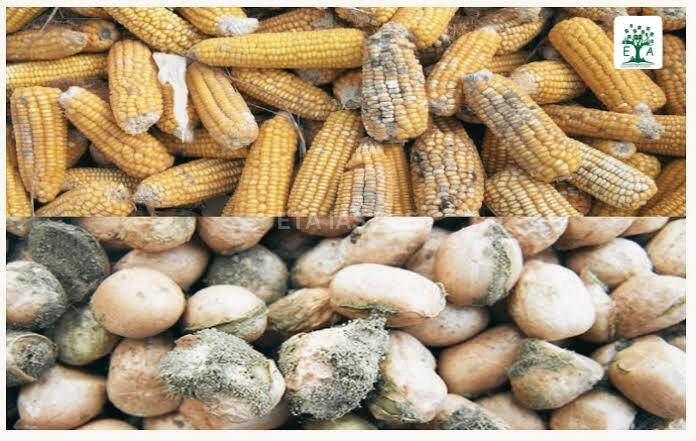WHY IN NEWS?
Peanut is vulnerable to aspergillus infection and subsequent aflatoxin contamination
- Susceptibility to Aspergillus: Peanuts are susceptible to infection by Aspergillus, which leads to contamination with aflatoxin.
Research at ICRISAT: Researchers at the International Crops Research Institute for Semi-Arid Tropics (ICRISAT) have studied this issue.
Natural Defense Mechanism: Certain peanut species have been found to possess a natural defense mechanism against Aspergillus.
Cell Wall Thickening: This defense mechanism involves the thickening of the cell walls of the peanut plants.
Impact on Seed Infection: The thickened cell walls contribute to a decrease in seed infection in agricultural settings.

ABOUT AFLATOXINS
Definition of Aflatoxins: Aflatoxins are toxic substances that are carcinogenic and mutagenic, produced by molds, particularly from the Aspergillus genus.
Crops Affected: These molds can infest various crops such as peanuts, corn, cottonseed, and tree nuts, especially in warm and humid environments.
Health Risks: Consumption of food or feed contaminated with aflatoxins can cause serious health issues, including:
- Acute toxicity
- Long-term health effects
- Increased risk of liver cancer
- Immune system suppression
- Growth deficiencies
Preventive Strategies: To reduce the risk of aflatoxin contamination, the following strategies are essential:
- Good agricultural practices (GAPs) to limit fungal contamination during crop cultivation.
- Ensuring appropriate storage conditions to prevent fungal growth and toxin production.
- Regular monitoring and testing of food and feed for aflatoxin levels.
UPSC PYQ 2013
Q.Improper handling and storage of cereal grains and oilseeds result in the production of toxins known as aflatoxins which are not generally destroyed by normal cooking process. Aflatoxins are produced by
a) bacteria
b) protozoa
c) moulds
d) viruses
